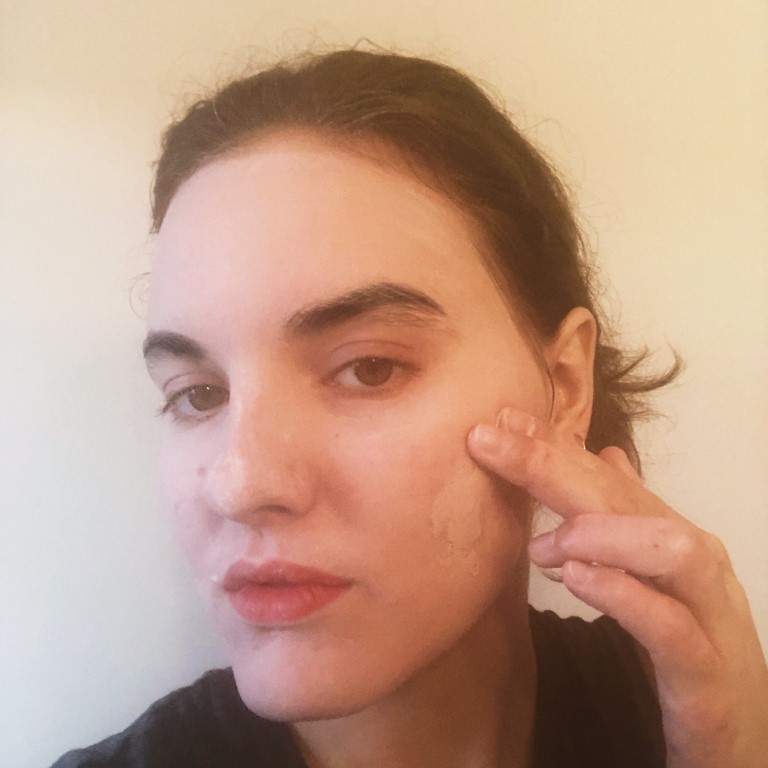
Ingredients like roses, honey, and oatmeal help make happy skin
By Morgan Hannah, Life & Style Editor
It’s mask season! However, these masks are more for comfort and beauty than for keeping COVID-19 infections low. Face masks are a luxurious and fun way to pamper oneself on any given day—but not just anything can be mixed together and lathered on the skin of one’s face. That is why I’m sharing some super sweet face mask mixtures for most skin types that’ll leave you feeling fresh, smooth, clean, and totally calm!
I have actually made and tested each of these recipes on my own face (giving at least a week between each mask so as not to shock my skin) and I can attest to the qualities and care that each of these natural ingredients provide when used topically. And the best part is that most (if not all) of these ingredients can be sourced as common household items! And as a double bonus, if you don’t already have roses in the house, now is the time to buy yourself a pretty bouquet and treat yo’ self!
Dry
Skin: Honey & Avocado Mask
Honey
hydrates the skin by pulling water to its surface as well as providing anti-inflammatory and antibacterial properties. It
also offers low to no chance of irritation. In addition, avocado is a smooth
moisturizer that contains natural oils—together, these powerful ingredients
make a marvelous face mask for dry skin.
How to make:
Puree a quarter of an entire avocado with one teaspoon of honey and one teaspoon of olive oil (or another natural oil, such as coconut or almond). Optional: Add aloe vera gel straight from the source—an aloe plant. Cover your face evenly and wait for 15 to 20 minutes. Rinse with warm water while massaging the skin in a circular motion.
Sensitive Skin: Honey Tea & Cucumber Mask
Cucumbers are so mild and absorbent, making them the perfect carrier for this ultra-calming sensitive skin blend. And black tea is rich in antioxidants—which are excellent for the skin.
How to make:
Blend one cup of black tea (steeped for about five minutes) with one tablespoon of honey until dissolved. Then, soak thin slices of baby cucumber in the mixture for about 10 minutes. Optional: add one or two drops of lavender, calendula, or sandalwood essential oil—all of which have anti-inflammatory properties and are great for mood boosting and calming the skin. Remove the cucumber slices from the mixture and rest them evenly on the face for 10 to 20 minutes. Rinse face with warm water.
Oily & Acne-Prone Skin: Banana, Orange & Honey Mask
Bananas are great for nourishing and naturally moisturizing oily skin. Add them to honey for its antiseptic properties to help fight bacteria that causes acne. The addition of pure orange juice helps to dry out acne and exfoliate the skin, making for the perfect mask.
How to make:
Mash up one banana and mix with two tablespoons of honey and one teaspoon of orange juice (lemon juice works as an alternative to orange juice). Apply to the face and leave on for about 15 minutes. Rinse using warm water and circular motions.
Eczema-Prone Skin: Oatmeal & Honey Mask
As someone who has suffered from eczema their entire life, I can attest to the use of antioxidant-loaded oatmeal as a gentle ingredient that helps my irritated and sensitive skin. The anti-inflammatory properties of honey helps calm and sooth eczema-prone skin also.
How to make:
Mix together one tablespoon of oatmeal, one teaspoon of raw honey, and half a teaspoon of water. Clean the skin prior to application. Use a scent-free sensitive skin soap (my favourite is Dove Sensitive Skin) and after apply a thin layer of mask to the face. Leave it on for around 10 minutes for the best skin-soothing effects. Rinse with warm water and pat dry. (My best results include applying a thin layer of CeraVe moisturizing cream to the face afterwards.)
Combination Skin: Fresh Rose & Honey Mask
The natural oils found in roses help to lock in moisture keeping skin silky smooth. Rose water, an ingredient in this mask, is also excellent for helping to prevent and treat infections with its powerful antiseptic properties.
How to make:
Combine one teaspoon of honey, two teaspoons of rose water, and one teaspoon of plain yogurt; stir until ingredients form a smooth paste. Fold in six to eight chopped rose petals. Apply to the face and leave on for 10 to 15 minutes. Rinse with warm water while massaging the skin in a circular motion.
Curious how to make rose water? Here is a recipe courtesy of AlphaFoodie.
How to make:
Remove the rose blossoms from the stems and carefully rinse them to get rid of dust or impurities. Put a bowl at the centre of an empty saucepan, then add the rose petals. Add water (enough to cover the petals) and turn up the heat to a simmer. Put a saucepan lid on—this will help to catch the rose water vapour. Add ice to the top of the saucepan lid. Keep replenishing ice as it melts, this helps with the condensation of the evaporated rose water. In around 30 minutes, the rose water will be ready. It should have condensed into the bowl in the middle of the saucepan. Carefully remove the bowl using oven-safe mittens and pour the rose water into a clean glass container. Store in a cool and dry place.

